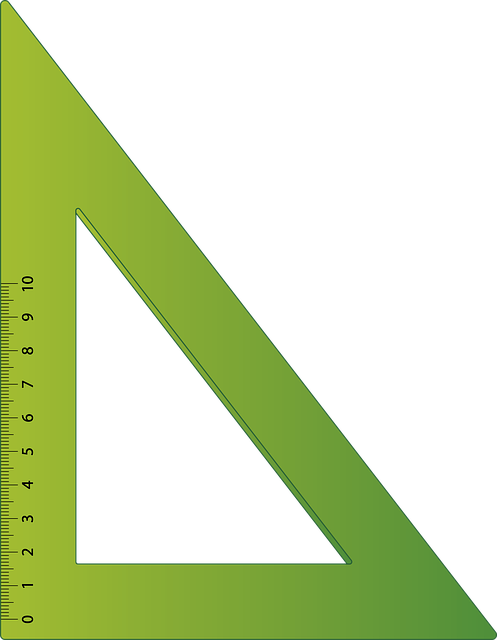Preparing UK Technical Standards: Navigating Regulatory Compliance through Expert Translation
In today's dynamic UK regulatory environment, translation services for UK Technical Guidelines and Standards are essential for businesses aiming to comply with complex regulations. These services ensure accurate communication of technical inform…….

In today's dynamic UK regulatory environment, translation services for UK Technical Guidelines and Standards are essential for businesses aiming to comply with complex regulations. These services ensure accurate communication of technical information across languages, fostering consumer confidence and facilitating international operations. By leveraging specialized translators with deep domain knowledge, organizations can maintain compliance, avoid legal risks, and navigate evolving standards effectively, ultimately accelerating their global growth.
Are your UK technical standards prepared for imminent regulatory scrutiny? With increasing globalisation, ensuring compliance across diverse markets is paramount. This article delves into the intricacies of UK technical guidelines and standards, highlighting their regulatory significance. We explore the pivotal role of translation services in facilitating adherence, addressing common challenges, and offering best practices for accurate translations. Through case studies and expert insights, we guide organisations through the process of selecting suitable language service providers, adapting to evolving landscapes, and ultimately, reinforcing UK technical regulations through robust translations.
- Understanding UK Technical Standards and Their Regulatory Significance
- The Role of Translation Services in Ensuring Compliance
- Common Challenges in Translating Technical Documentation
- Best Practices for Accurate and Consistent Translations
- Case Studies: Successful Translation Projects in Regulated Industries
- Choosing the Right Language Service Provider for Technical Translation
- Future-Proofing Your Standards: Adapting to Changing Regulatory Landscape
- Conclusion: The Impact of Quality Translations on UK Technical Regulations
Understanding UK Technical Standards and Their Regulatory Significance

In the dynamic landscape of regulation, understanding and adhering to UK technical standards is paramount for businesses and organisations operating within the country. These standards, developed through rigorous research and industry collaboration, serve as a blueprint for product quality, safety, and performance. They ensure that goods and services meet specific criteria, fostering consumer confidence and market integrity. Regulatory bodies in the UK meticulously review these standards to maintain high-quality standards and keep pace with technological advancements.
Translation services play a pivotal role in ensuring that these UK technical guidelines and standards are accessible and comprehensible for all stakeholders, especially multinational companies navigating complex regulatory environments. Accurate translations facilitate compliance, enable seamless communication between regulators and businesses, and promote a level playing field for all market participants. With the ever-evolving nature of regulation, staying aligned with the latest UK technical standards and leveraging translation services can be a game-changer in demonstrating regulatory readiness.
The Role of Translation Services in Ensuring Compliance

In ensuring that UK technical guidelines and standards are ready for regulatory review, translation services play a pivotal role. With an ever-growing global market and complex international regulations, accurate and consistent communication is key to compliance. Translation services help bridge the gap between different languages and legal frameworks, guaranteeing that technical documentation remains precise and accessible across borders.
These services are particularly crucial when it comes to updating and revising UK standards. They ensure that all revisions and amendments are correctly interpreted and conveyed in multiple languages, avoiding potential misinterpretations or non-compliance issues. By leveraging professional translation expertise, organizations can maintain the integrity of their technical standards while navigating the complexities of global regulatory requirements.
Common Challenges in Translating Technical Documentation

Translating technical documentation from complex, specialized texts can present a number of challenges. When it comes to UK technical guidelines and standards, ensuring precise and accurate translations is paramount for regulatory compliance. One significant hurdle lies in capturing intricate terminology specific to a particular industry or field. What might be a straightforward term in one context could have multiple meanings or even lack an exact equivalent in another language. This requires not just linguistic proficiency but also deep domain knowledge to avoid misinterpretations.
Another challenge is the potential for subtle cultural differences affecting how information is conveyed and understood. A translation service specializing in UK technical guidelines must be adept at navigating these nuances, ensuring that regulatory requirements are communicated effectively across languages. This often involves more than just word-for-word substitutions; it requires a deep understanding of both source and target cultures to maintain the integrity and intent of the original document.
Best Practices for Accurate and Consistent Translations

When it comes to UK technical standards and guidelines, accurate and consistent translations are paramount during regulatory reviews. To ensure precision, organisations should rely on professional translation services specifically tailored for this domain. These services employ translators with expertise in both the source and target languages, as well as a deep understanding of technical terminology.
Best practices include providing clear context and comprehensive source materials to translators. Standardised glossaries and style guides help maintain consistency across documents. Additionally, quality assurance checks post-translation are crucial to catch any errors or inconsistencies. This meticulous approach guarantees that the translated guidelines accurately reflect the original intent, ensuring a seamless regulatory review process.
Case Studies: Successful Translation Projects in Regulated Industries

In recent years, successful translation projects within regulated industries across the UK have demonstrated the vital role that professional translation services play in ensuring compliance with technical guidelines and standards. These case studies showcase how precision and accuracy in translation can be critical factors in navigating complex regulatory landscapes. For instance, a leading pharmaceutical company encountered challenges when expanding its operations to the European Union, requiring the precise localisation of detailed product information and safety data sheets. A specialized translation service was engaged to handle this delicate task, resulting in seamless compliance with EU regulations and accelerating the company’s market entry.
Another compelling example involves a financial services provider that needed to translate and localise various regulatory documents for its international expansion strategy. By leveraging expert translators with a deep understanding of financial terminology, the project achieved fluency and cultural relevance while adhering strictly to regional regulatory requirements. This successful translation initiative not only facilitated the company’s global growth but also underscored the importance of tailored language solutions in mitigating potential legal risks associated with cross-border operations. These real-world applications highlight the necessity for UK organisations, especially those within regulated sectors, to invest in high-quality translation services when updating or adopting technical standards and guidelines.
Choosing the Right Language Service Provider for Technical Translation

When it comes to ensuring your UK technical standards are ready for regulatory review, selecting the appropriate language service provider is paramount. Look for a company specializing in technical translation, with expertise in your industry and an understanding of regulatory requirements. This ensures accurate and compliant translations that meet the stringent demands of the UK market.
The right provider should offer not just translation but also localization services, adapting content to fit cultural nuances and legal frameworks. Additionally, they must employ qualified translators with extensive technical knowledge, often acquired through specialized training or industry experience. This level of expertise is crucial for accurately conveying complex terminology and ensuring your standards are communicated effectively across languages.
Future-Proofing Your Standards: Adapting to Changing Regulatory Landscape

As regulations evolve, ensuring your UK technical standards are future-proof is vital to avoid costly non-compliance. The dynamic nature of legislation demands a flexible approach to guidelines and standards, allowing for easy adaptation to new requirements. This is particularly relevant in industries where technology advances rapidly; keeping up with these changes can be challenging without proactive measures.
Translation services for UK technical guidelines and standards play a crucial role in this context. Professional translators help interpret and update documents to align with the latest legal developments, ensuring your standards remain relevant. By leveraging translation expertise, organizations can confidently navigate the shifting regulatory landscape, maintaining compliance and avoiding potential penalties.
Conclusion: The Impact of Quality Translations on UK Technical Regulations

The accuracy and reliability of UK technical standards are paramount, especially in highly regulated industries. Quality translations play a pivotal role in ensuring that these essential guidelines are accessible and understandable across diverse linguistic landscapes. When it comes to regulatory reviews, translation services for UK Technical Guidelines and Standards become indispensable tools. They enable stakeholders to interpret complex regulations accurately, fostering compliance and avoiding potential pitfalls.
In the digital age, where global interactions are frequent, professional translators equipped with industry-specific knowledge can bridge communication gaps. Their expertise ensures that technical concepts are conveyed seamlessly, preserving the integrity of the original intent. This is crucial for businesses operating in the UK or aiming to expand their reach, as it minimizes risks associated with misinterpretations and non-compliance, ultimately facilitating smoother regulatory processes.
In conclusion, ensuring your UK technical standards are ready for regulatory review is paramount. By understanding the significance of these standards and their interplay with regulations, leveraging translation services to overcome language barriers, and adopting best practices in documentation, organizations can achieve compliance. Case studies demonstrating successful translations in regulated industries serve as a testament to the impact of quality translations on UK technical regulations. Future-proofing your standards involves staying adaptable in a changing landscape, making it essential for businesses to invest in professional translation services for their UK Technical Guidelines and Standards.







